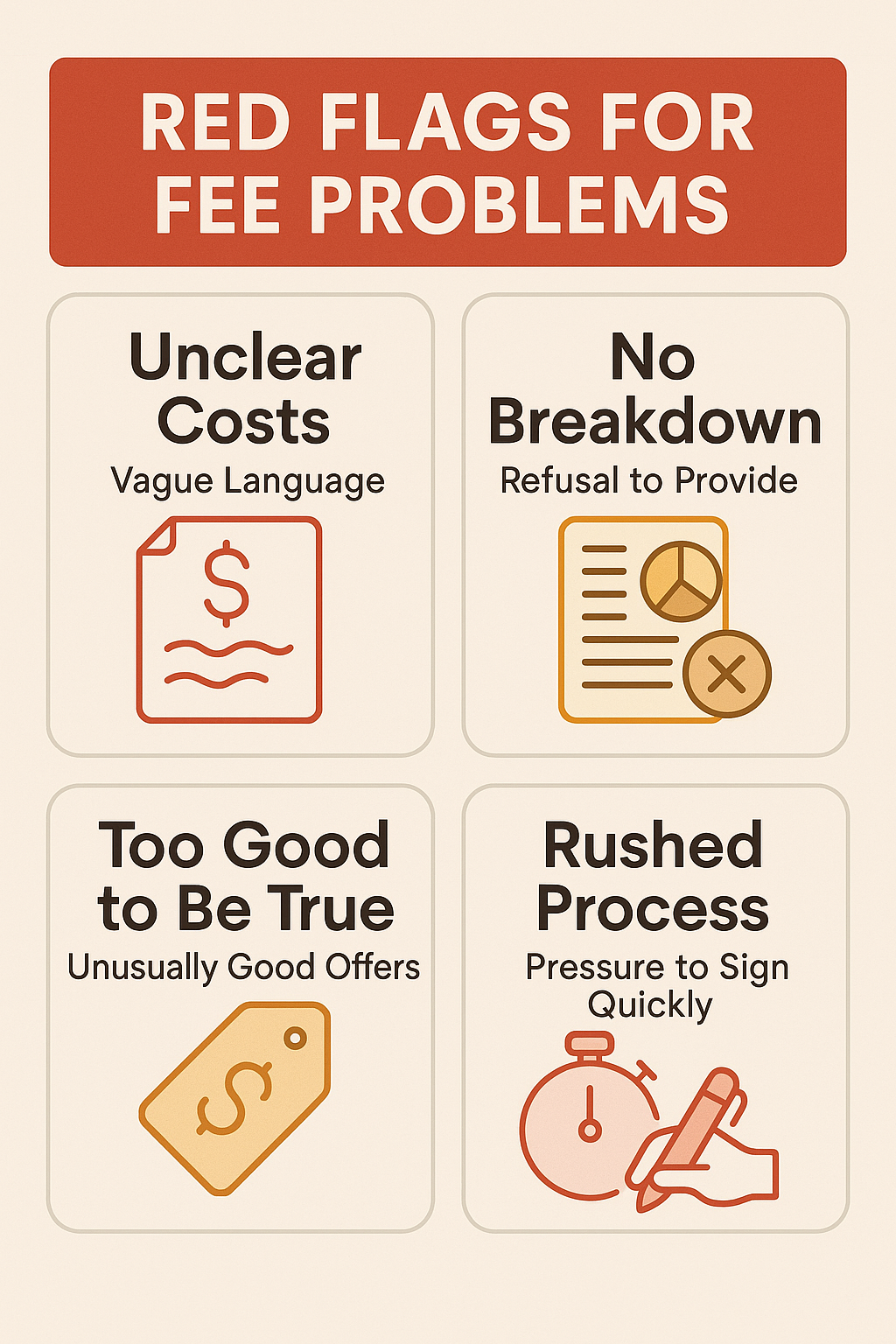Merchant cash advances can provide quick access to capital, but hidden fees may turn what appears to be affordable funding into a costly financial burden. Understanding contract terms and fee structures helps protect your business from surprise charges that could impact your bottom line.
Understanding Common Hidden Fees in MCA Contracts
Understanding common MCA contracts starts with recognizing that not all funding providers structure their costs the same way. Some providers may include origination fees, processing charges, or underwriting costs that significantly increase your total funding expense. These fees might be buried in contract language or presented as standard industry practices.
The key to avoiding surprise fees in merchant funding lies in requesting a complete breakdown of all costs before signing. Ask specifically about origination fees, late payment penalties, and any administrative charges that could apply during the repayment period. This upfront transparency helps you calculate the true cost of your funding arrangement.
Reading Between the Lines of Your Funding Agreement
Reading between the lines of your funding agreement requires careful attention to sections that describe additional charges or penalties. Fee transparency should be clearly outlined in any legitimate funding contract, but some providers may use complex language to obscure certain costs. Look for terms like 'administrative fees,' 'service charges,' or 'maintenance costs' that could add to your repayment obligations.
Smart contract reading involves reviewing every section that mentions money, percentages, or payment terms. Pay particular attention to clauses about what happens if your payment schedule changes or if you want to pay off the advance early, as these situations might trigger additional fees.
Essential Questions to Ask Before Signing Your MCA Contract
Essential questions to ask before signing your MCA contract can help reveal any hidden costs that might not be immediately apparent. These questions should cover all aspects of your funding arrangement to ensure complete fee transparency.
- What is the total cost of this funding, including all fees and charges?
- Are there any origination fees or underwriting fees beyond the factor rate?
- What penalties apply if my daily sales volume changes significantly?
- Are there early payoff fees if I want to settle the advance before the full term?
- What additional charges might apply during the repayment period?
Red Flags That Signal Potential Fee Problems

Red flags that signal potential fee problems often appear during the application and contract review process. Being aware of these warning signs can help you avoid agreements that might include surprise charges.
- Providers who refuse to give you a written breakdown of all costs
- Contracts with vague language about 'additional fees' or 'administrative costs'
- Funding offers that seem unusually good compared to other options
- Representatives who rush you through the contract signing process
- Terms that allow the provider to change fees or rates after signing
Avoiding surprise fees in merchant funding requires diligent contract review and asking the right questions upfront. By understanding common fee structures and insisting on transparency, you can make informed decisions that support your business growth without unexpected financial strain.

.png)






